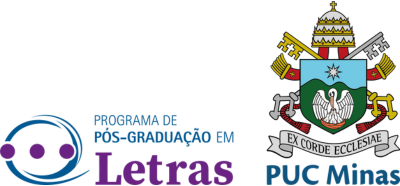Tense, Aspect, Mood and Modality
DOI:
https://doi.org/10.5752/P.2358-3428.2020v24n51p27-45Palavras-chave:
EditorialResumo
Sem resumo
Downloads
Não há dados estatísticos.
Referências
BERTINETTO, P. M. On a frequent misunderstanding in the temporal-aspectual domain: the perfective-telic confusion. In: CECCHETTO, C.; CHIERCHIA, G.; GAUSTI, M. T. Semantic interfaces: reference, anaphora and aspect. Stanford: CSLI, 2001. p. 177-210.
BINNICK, Robert I. The Oxford handbook of tense and aspect. Oxford: Oxford University Press, 2012.
BINNICK, Robert I. Time and the verb: a guide to tense and aspect. New York and Oxford: Oxford University Press, 1991.
CHOMSKY, Noam. Aspects of theory of syntax, Cambridge: MIT Press, 1965.
CHOMSKY, Noam. Language and mind. New York: Harcourt Brace Jovanovich, 1972.
CHOMSKY, Noam. The minimalist program. Cambridge: MIT Press, 1995.
CINQUE, Guglielmo. Adverbs and functional heads: a crosslinguistics perspective. New York: Oxford University Press, 1999.
COMRIE, Bernard. Aspect. Cambridge: Cambridge University Press, 1976.
COMRIE, Bernard. Tense. Cambridge University Press, 1985.
EMONDS, Joseph. A transformation approach to syntax. New York: Academic Press, 1976.
ILARI, Rodolfo. Sobre os advérbios aspectuais. In: ILARI, Rodolfo (org.). Gramática do português culto falado no Brasil. São Paulo: Contexto, 2002. v. 2.
POLLOCK, Jean-Yves. Verb movement, universal grammar, and the structure of IP. Linguistic Inquiry, v. 20, n. 3, p. 365-425, 1989.
SMITH, C. S. The Parameter of Aspect. 2. ed. Dordrecht: pringer Science+Business, 1997. v. 43.
TRAVAGLIA, L. C. Um estudo textual-discursivo do verbo no Português do Brasil. Tese (Doutorado) – Universidade Estadual de Campinas/ Instituto de Estudos da Linguagem, Campinas, 1991.
VENDLER, Z. Verbs and Times. The Philosophical Review, v. 66, n. 2, p. 143-160, 1957.
BINNICK, Robert I. The Oxford handbook of tense and aspect. Oxford: Oxford University Press, 2012.
BINNICK, Robert I. Time and the verb: a guide to tense and aspect. New York and Oxford: Oxford University Press, 1991.
CHOMSKY, Noam. Aspects of theory of syntax, Cambridge: MIT Press, 1965.
CHOMSKY, Noam. Language and mind. New York: Harcourt Brace Jovanovich, 1972.
CHOMSKY, Noam. The minimalist program. Cambridge: MIT Press, 1995.
CINQUE, Guglielmo. Adverbs and functional heads: a crosslinguistics perspective. New York: Oxford University Press, 1999.
COMRIE, Bernard. Aspect. Cambridge: Cambridge University Press, 1976.
COMRIE, Bernard. Tense. Cambridge University Press, 1985.
EMONDS, Joseph. A transformation approach to syntax. New York: Academic Press, 1976.
ILARI, Rodolfo. Sobre os advérbios aspectuais. In: ILARI, Rodolfo (org.). Gramática do português culto falado no Brasil. São Paulo: Contexto, 2002. v. 2.
POLLOCK, Jean-Yves. Verb movement, universal grammar, and the structure of IP. Linguistic Inquiry, v. 20, n. 3, p. 365-425, 1989.
SMITH, C. S. The Parameter of Aspect. 2. ed. Dordrecht: pringer Science+Business, 1997. v. 43.
TRAVAGLIA, L. C. Um estudo textual-discursivo do verbo no Português do Brasil. Tese (Doutorado) – Universidade Estadual de Campinas/ Instituto de Estudos da Linguagem, Campinas, 1991.
VENDLER, Z. Verbs and Times. The Philosophical Review, v. 66, n. 2, p. 143-160, 1957.
Downloads
Publicado
24-09-2020
Como Citar
HERMONT, Arabie Bezri; MARTINS, Adriana Leitão. Tense, Aspect, Mood and Modality. Scripta, Belo Horizonte, v. 24, n. 51, p. 27–45, 2020. DOI: 10.5752/P.2358-3428.2020v24n51p27-45. Disponível em: https://periodicos.pucminas.br/scripta/article/view/24552. Acesso em: 16 fev. 2026.
Edição
Seção
Editorial
Licença
O envio de qualquer colaboração implica, automaticamente, a cessão integral dos direitos autorais à PUC Minas. Solicita-se aos autores assegurarem:
- a inexistência de conflito de interesses (relações entre autores, empresas/instituições ou indivíduos com interesse no tema abordado pelo artigo), e
- órgãos ou instituições financiadoras da pesquisa que deu origem ao artigo.
- todos os trabalhos submetidos estarão automaticamente inscritos sob uma licença creative commons do tipo "by-nc-nd/4.0".


 Português
Português English
English Español
Español
 Italiano
Italiano






